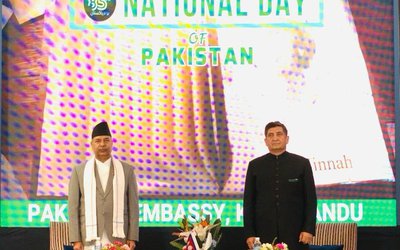More on National





Nepal’s transition from a unitary set-up to a federal one will have to come with a host of institutional changes. Existing institutions belonging to all the three organs of the State will have to be revamped towards implementing the new federal constitution. The changes that are to be anticipated while implementing federalism in Nepal are going to be both- ‘structural’ as well as ‘functional’ in nature. The current set-up of the judiciary will also have to be modified in both of these aspects (structural and functional) to accommodate the necessary changes.
Structural Issues:
The preliminary draft of the Constituent Assembly Committee on Judicial System has suggested a three tier judicial system comprising of the Federal Supreme Court, the Provincial High Court and the District/ Local Court. Although this structure may not look very different from the existing one, the arrangement of high courts in harmony with the federal units upon restructuring of the State is going to be a real challenge. High courts have to be so arranged that it can effectively deal with appeals from all lower courts within its jurisdiction, and therefore be easily accessible to all its subordinate courts and interested parties.
Another important issue to be settled is concerning the ‘constitutional court’. This issue has been a debatable one, both within the Constituent Assembly as well as the judicial circle of Nepal. The main argument for having a Constitutional Court is that the Federal Supreme Court will be flooded with constitutional interpretations to deliver in the light of the new constitution, and therefore, it is best to grant this to a specialized court as this will further provide uniformity of constitutional interpretations. However, views have also been expressed that the Federal Supreme Court, just like the current Supreme Court, will prove adequate in interpreting the new constitution and hence a new entity will only create confusion and lack of coordination within the judiciary. Although both the sides ‘for’ and ‘against’ having the constitutional court may have their merits and demerits, the point it that it is still to be decided whether or not to have one and prepare for implementation of the new constitution. Delay in taking this decision has prevented the new judicial structure of Nepal from taking shape at least on paper which has further delayed any planning in this regard.
Functional Issue
In the current setup, the Supreme Court of Nepal is vested broadly with- ordinary jurisdiction, extra-ordinary jurisdiction, jurisdiction of judicial control and miscellaneous jurisdiction. However, upon the establishment of the High Courts as provided by the Committee on Judicial System, the Federal Supreme Court will have to play a crucial role in harmonizing legal interpretations. Instances will arise wherein a question of law will be interpreted differently by two or more High Courts while deciding cases. In the eventuality of such instances, it will be the chief function of the Federal Supreme Court to address such questions and provide uniformity in interpretation. This function of the Federal Supreme Court will also be crucial in establishing certainty of law across various High Courts. This will be a new but vital function that the apex court will have to proactively perform in the context of federal Nepal apart from its regular duties.
Also, mechanisms of ensuring inclusive judiciary will be necessary in the federal context. Apart from ethnic inclusivity, Federal Supreme Court should ensure the inclusion of judges from all the respective federal units of Nepal. This will be an important aspect of revamping the judiciary while implementing the new constitution of Nepal.
Challenges in Revamping the Judiciary
Adequate human resource and infrastructure will undoubtedly be the major challenges to be faced by the State in revamping the judiciary. Some of the existing Appellate Courts could be enlarged and transformed into High Courts while rest will have to simply be made from scratch depending upon how the State gets restructured. Timely and strategic planning can help mitigate the infrastructural challenges. However, garnering adequate human resource that shall be necessary in revamping the judiciary towards federalism will be a bigger challenge than that of ‘infrastructure’. The State needs to invest in legal institutions (especially educational and legal training based institutions) as soon as possible to create the necessary workforce in days to come. Lack of adequate and modern legal educational/training institutions will cripple the functioning of the judiciary at all levels in the federal context.
Judiciary is just one of the organs of the State that needs to be transformed to fit the new federal system. It is however a worrying sight that in the present context, key issues pertaining to the new judicial system are still to be settled by the Constituent Assembly. The uncertainty of the restructured units of new Nepal, even as of now, has made it impossible to paint an exact picture of the judicial institutions in days to come. Therefore, careful planning and settlement of contentious issues regarding the judicial systems should be the main focus towards ensuring a stable and strong judiciary in federal Nepal.






